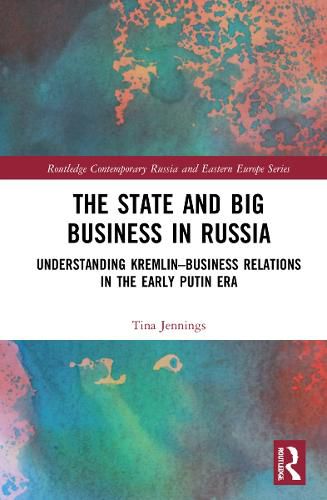Readings Newsletter
Become a Readings Member to make your shopping experience even easier.
Sign in or sign up for free!
You’re not far away from qualifying for FREE standard shipping within Australia
You’ve qualified for FREE standard shipping within Australia
The cart is loading…






This book presents a study of the complex relationship between the Russian state and big business during Vladimir Putin’s first two presidential terms (2000-2008). Based on extensive original research, it focuses on the interaction of Russia’s political executive with the ‘oligarchs’. It shows how Putin’s crackdown on this elite group led big business to accept new ‘rules of the game’ and how this was accompanied by the involvement of big business in policy formulation, particularly through the organisational vehicle of the Russian Union of Industrialists and Entrepreneurs (RSPP). It goes on to discuss why Yukos and its CEO Mikhail Khodorkovsky were targeted by Russia’s political authorities and the resultant consequences, namely the end of the relatively successful framework via which state-business relations had been managed, and its replacement by fear and mutual distrust, along with a vastly expanded role for the state, and state-related actors, in the Russian corporate sector. The book explores all these developments in detail and sets them against the context of continued trends towards greater authoritarianism in Russia.
$9.00 standard shipping within Australia
FREE standard shipping within Australia for orders over $100.00
Express & International shipping calculated at checkout
This book presents a study of the complex relationship between the Russian state and big business during Vladimir Putin’s first two presidential terms (2000-2008). Based on extensive original research, it focuses on the interaction of Russia’s political executive with the ‘oligarchs’. It shows how Putin’s crackdown on this elite group led big business to accept new ‘rules of the game’ and how this was accompanied by the involvement of big business in policy formulation, particularly through the organisational vehicle of the Russian Union of Industrialists and Entrepreneurs (RSPP). It goes on to discuss why Yukos and its CEO Mikhail Khodorkovsky were targeted by Russia’s political authorities and the resultant consequences, namely the end of the relatively successful framework via which state-business relations had been managed, and its replacement by fear and mutual distrust, along with a vastly expanded role for the state, and state-related actors, in the Russian corporate sector. The book explores all these developments in detail and sets them against the context of continued trends towards greater authoritarianism in Russia.